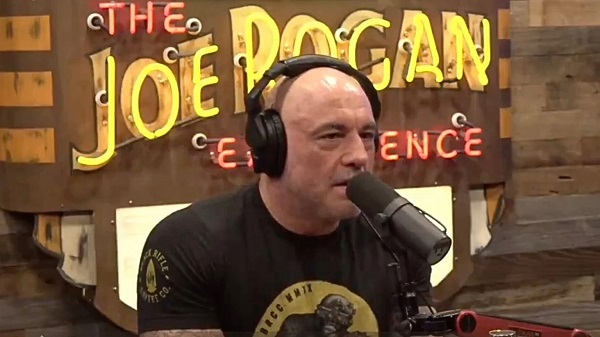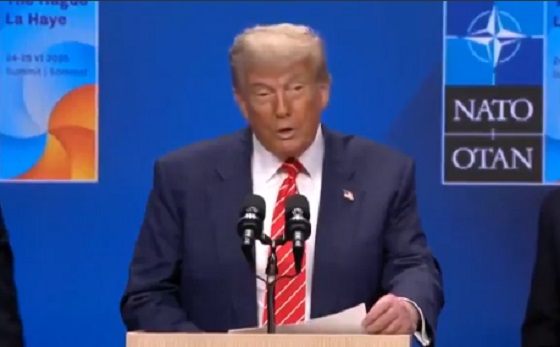Censorship Industrial Complex
Joe Rogan Responds To YouTube Censorship of Trump Interview

From Reclaim The Net
|
Joe Rogan has accused YouTube of making it difficult for users to find his recent interview with former President Donald Trump, saying that the platform initially only displayed short clips from mainstream media instead of the full episode. Rogan sarcastically remarked on YouTube’s actions, saying, “I’m sure it was a mistake at YouTube where you couldn’t search for it. Yeah. I’m sure it was a mistake. It’s just a mistake.”
In episode 2200, Rogan explained that even though his team contacted YouTube multiple times, the episode remained difficult to find. X CEO Elon Musk intervened, contacting Spotify CEO Daniel Ek about the issue. (Spotify exclusively licenses The Joe Rogan Experience but allows the show on third-party platforms like YouTube.) Watch the video clip here. Rogan noted the explosive viewership once the content was available, with the episode racking up “six and a half million views on mine and eight plus million on his.”
Emphasizing the episode’s broad reach, Rogan expressed frustration with the initial suppression, stating, “You can’t suppress shit. It doesn’t work. This is the internet. This is 2024. People are going to realize what you’re doing.” He pointed to the significance of this episode’s reach, asking, “If one show has 36 million downloads in two days, like that’s not trending? Like what’s trending for you? Mr. Beast?” Describing the power of YouTube’s algorithmic influence, Rogan claimed the algorithm worked against the interview’s visibility, only showing clips instead of the full conversation. According to him, when YouTube initially fixed the issue, users had to enter highly specific keywords, like “Joe Rogan Trump interview,” to find the episode. Rogan argued that YouTube’s gatekeeping reflected an ideological stance, remarking, “They hate it because ideologically they’re opposed to the idea of him being more popular.” He suggested that major tech platforms, such as YouTube and Facebook, which hold significant influence, often push agendas that favor specific narratives, stating, “They didn’t like that this one was slipping away. And so they did something.” In a telling moment, Rogan noted the impact of the initial suppression, explaining how “the interactions…dropped off a cliff because people couldn’t find it.” He claimed that this caused viewers either to give up or settle for short clips, leading to a dip in views before the episode gained traction on Spotify and X. |
Since there's an issue with searching for this episode on YouTube here is the full podcast with Trump pic.twitter.com/sl2GTUaWdE
— Joe Rogan (@joerogan) October 29, 2024
Censorship Industrial Complex
Global media alliance colluded with foreign nations to crush free speech in America: House report

From LifeSiteNews
By Dan Frieth
The now-defunct ad coalition GARM shared insider data and urged boycotts of Twitter to punish non-compliance with its ‘harmful content’ standards, a US House Judiciary report shows.
A new report from the U.S. House Judiciary Committee has shed light on what it describes as an alarming collaboration between powerful corporations and foreign governments aimed at suppressing lawful American speech.
The investigation focuses on the Global Alliance for Responsible Media (GARM), an initiative founded in 2019 by the World Federation of Advertisers (WFA), which the committee accuses of acting as a censorship cartel.
According to the report, GARM, whose members control about 90 percent of global advertising spending, exploited its market dominance to pressure platforms like Twitter (now X) into compliance with its restrictive content policies.
A copy of the report can be found HERE.
The committee highlighted how GARM sought to “effectively reduce the availability and monetization” of content it deemed harmful, regardless of public demand for free expression.
Documents obtained by the committee reveal direct coordination between GARM and foreign regulators, including the European Commission and Australia’s eSafety commissioner.
In one exchange, a European bureaucrat encouraged advertisers to leverage their influence to “push Twitter to deliver on GARM asks.”

Similarly, Australia’s eSafety Commissioner Julie Inman Grant praised GARM’s “significant collective power in helping to hold the platforms to account” and sought updates to “take into account in our engagement and regulatory decisions.”

Robert Rakowitz, GARM’s co-founder and initiative lead, expressed a chilling goal in private correspondence, stating that silencing President Donald Trump was his “main thing” and likening the president’s speech to a “contagion” he aimed to contain “to protect infection overall.”

The report outlines how GARM distributed previously unavailable non-public information about Twitter’s adherence to its standards, fully aware this would prompt advertisers to boycott the platform if it failed to conform. According to the House report, Rakowitz admitted that this information sharing was designed to encourage members not to advertise on Twitter.
He went as far as to draft statements urging GARM members to halt advertising on the platform, telling colleagues he had gone “as close as possible” to saying Twitter “is unsafe, cease and desist.”
Despite the widespread impact of GARM’s actions, including what the committee describes as coerced “concessions” from platforms, internal polling circulated within GARM showed that “66 percent of American consumers valued free expression over protection from harmful content.”
Still, GARM pressed ahead with efforts to “eliminate all categories of harmful content in the fastest possible timing,” ignoring consumer preferences.
Even after GARM dissolved in 2024 amid legal challenges, similar efforts persisted.
A new coalition led by Dentsu and The 614 Group briefly attempted to revive GARM’s mission before disbanding under scrutiny. Gerry D’Angelo, a former GARM leader, reflected on the initiative’s overreach, stating, “Did we go too far in those first rounds of exclusionary restrictions? I would say yes.”
The Judiciary Committee warns that despite GARM’s downfall, the threat of collusion to stifle free expression remains.
It pledged to continue oversight to defend “the fundamental principles” of the Constitution and ensure that markets, not coordinated censorship efforts, shape the flow of information in the digital age.
Reprinted with permission from Reclaim The Net.
Censorship Industrial Complex
Jordan Peterson reveals DEI ‘expert’ serving as his ‘re-education coach’ for opposing LGBT agenda

From LifeSiteNews
The Ontario College of Psychologists has selected Jordan Peterson’s “re-education coach” for having publicly opposed the LGBT agenda.
In a June 16 op-ed published by the National Post, Canadian psychologist Dr. Jordan Peterson revealed that U.K. citizen Harry Cayton will guide him through the mandatory training.
“In the last week … the College has re-established contact, after months of unnecessary delay, which occurred in violation of their own order and guidelines. They have made me an entirely new offer, all the while insisting that this was their intent all along, which it most clearly was not,” Peterson said.
“All they really want, it turns out, is one two-hour session, which will not involve any ‘social media’ training,” he further explained. “This will be conducted by a man — one Harry Cayton — a citizen of the U.K., who is neither social media expert, according to the College and is definitely not a psychologist.”
Harry Cayton, a supposed expert on “professional regulation and governance,” is known professionally for promoting Diversity, Equity, and Inclusion (DEI) initiatives.
In 2021, he was appointed to conduct an independent review of the British Columbia Law Society’s governance structure, specifically examining how it supports DEI goals.
Additionally, in 2022, while appearing on Ascend Radio’s podcast, Cayton argued there should be more DEI regulations in professional associations.
Peterson has promised to make the details of his “re-education” public, questioning why the College wishes to hide what Cayton plans to discuss with him.
“If I am the intransigent fool, and he is the wizard to set things right, why not bless everyone interested with his wisdom, and allow them to participate in the restructuring of my psyche and eventual enlightening? Why the concern with confidentiality?” he asked.
Peterson also explained that he will publicize the training “so that people who are interested can decide for themselves what is going on.”
In January 2024, Peterson lost his appeal of the board’s decision to compel him to undergo mandatory re-education, meaning that he must attend the training or risk losing his license to practice psychology in Ontario.
Peterson also revealed that his “legal options have” now “been exhausted” after Ontario’s highest court rejected his appeal of the College’s 2022 ruling that his public political statements ran afoul of the administrative board’s rules and that he must therefore submit to, and personally pay for, a “coaching program” on professionalism.
Peterson is a widely-known critic of Canada’s increasingly totalitarian government. He has also spoken frequently on the need for young men to accept and take on personal responsibility. While he has seemingly inspired others to explore Christianity, he has not yet espoused a personal belief in any religion, though he affirmed his wife Tammy in her decision to convert to Catholicism in 2024.
-

 Alberta1 day ago
Alberta1 day agoAlberta judge sides with LGBT activists, allows ‘gender transitions’ for kids to continue
-

 Crime23 hours ago
Crime23 hours agoNational Health Care Fraud Takedown Results in 324 Defendants Charged in Connection with Over $14.6 Billion in Alleged Fraud
-

 Health22 hours ago
Health22 hours agoRFK Jr. Unloads Disturbing Vaccine Secrets on Tucker—And Surprises Everyone on Trump
-

 Business11 hours ago
Business11 hours agoElon Musk slams Trump’s ‘Big Beautiful Bill,’ calls for new political party
-

 Business2 days ago
Business2 days agoCanada Caves: Carney ditches digital services tax after criticism from Trump
-

 Crime2 days ago
Crime2 days agoSuspected ambush leaves two firefighters dead in Idaho
-

 Business2 days ago
Business2 days agoMassive government child-care plan wreaking havoc across Ontario
-

 Bruce Dowbiggin2 days ago
Bruce Dowbiggin2 days agoThe Game That Let Canadians Forgive The Liberals — Again






